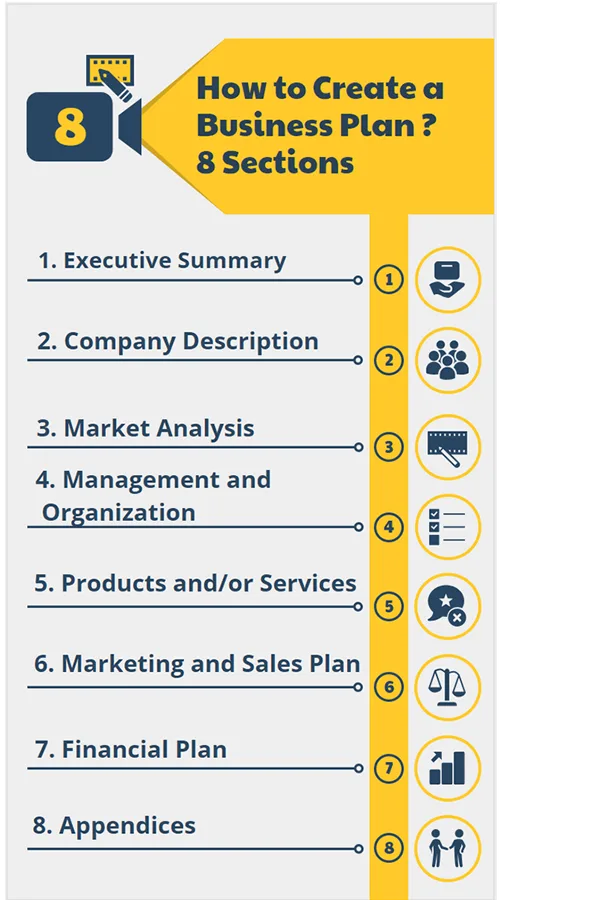
With so many funding options and automated tools, students are motivated to start their business nowadays.
It is not just a trend but many entrepreneurs know that it is a viable career for financial growth.
In fact, statistics by Finances Online reveal that being your own boss to follow a passion is the number one reason students want to start their venture.
It is also the changing job market along with hefty education loans that are pushing youngsters to build something that impacts the world.
However, executive leadership training is one of the skills that is required to turn dreams into reality while avoiding common pitfalls.
In this article, we are providing useful tips for students to start a business with confidence for a successful entrepreneurship journey.
Laying the Groundwork
Starting a business is like laying a strong foundation for a multistorey building.
To do that, you need to self-evaluate your strengths and weaknesses before being swept away in the entrepreneurship wave.
Besides that, there is a lot of marketing and technical training to consider as mentioned below. Let’s start with the basics.

Identifying Your Passion
The easiest way to understand your interests is by making a list of things that motivate you toward concrete action.
Another thing that could help you is avoiding the things that distract you from your mission.
You can create a table like this to clarify your thoughts:
| Interests | Problems to Solve |
| (Your interest here) | (Related problem) |
| (Another interest) | (Another related problem) |
This will help you identify your specific niche and move on a focused path leading to the completion of your business goals.
Market Research
Next, do thorough market research about the type of businesses with the same idea as yours.
You will get an idea of the tactics your competitors are applying to manage their startups.
Write down all points that make your venture unique, which will help you identify your target audience and their needs.
Defining Your Value Proposition
Your value is equal to the requirements you can fulfill for a customer. You can have an online shop with varied products or focus on one product with varied uses.
What will help you derive leverage is speaking the customer’s language, being concise, and preparing a compelling selling narrative.
FUN FACT
Steve Jobs, the Apple Industries founder, and Jeff Bezos, the Amazon founder, started their business from a garage.
Building Your Business Plan

Your entrepreneurial journey should have a clear path to follow. It means having a roadmap that drives the engine smoothly.
Here’s how to create a robust strategy for your business plan.
Executive Summary
Things that will assist you in defining your startup clearly and concisely are:
- Having a mission statement for your company.
- Business name, location, and the type of product/services you offer.
- If you are the sole founder or have a partner or a team.
- Total startup costs, including any funding requirements for seeking investments.
Marketing and Sales Strategy
The only way to leverage your product/services is by creating a marketing team that manages the sales.
Identifying your target audience also helps understand the target market to promote it online through varied marketing channels like social media platforms.
Create a complete sales process timeline, from lead generation to closing the deal.

STATISTICS
The chart shows that startups invest the most in a strong marketing team, which helps them reach their financial goals.
Financial Projections
Every investor who wants to make money will focus on a startup with keen business acumen and a strong financial management system in place.
Here’s how to craft a perfect bookkeeping record for your finances:
- A profit and loss statement with predictive revenues, costs, as well as expenses over a specific period.
- Cash flow statement with a clear timeline of how you will generate income from your business.
- A balance sheet to show how well your venture took off and is ready for expansion.
Getting Off the Ground
Your jet is now ready to get off the ground with all the necessary tools to fly into the business market.
This is the time to look ahead while managing your venture with your business acumen by the following methods.
Funding Your Venture

If you have watched seasons of Shark Tank, you know the importance of funding.
As a student, you will also need to calculate how much money you need and from where it will be generated. Here are some funding source ideas:
- Dig into your savings or borrow from your friends and family.
- Research for communities that support local businesses through grants.
- Crowdfunding platforms allow you to raise funds and kickstart your venture.
Choosing a Business Structure
Knowing the type of business structure impacts your taxes and personal liability. Let us help you understand that in detail:
| Sole Proprietorship | Total control over all the liabilities for debts. |
| Partnership | Shared control, profits, with variable liabilities. |
| Corporations (C-Corp, S-Corp) | Complex but have fewer liability issues with possible tax benefits. |
| Limited Liability Company (LLC) | Combines the benefits of corporations and sole proprietorships/partnerships. |
THINGS TO CONSIDER
Consult with a legal advisor to pick the best structure for your company.
Branding and Marketing Essentials
Creating a brand is relevant to stand out among a crowd of competitors. A few points to focus on are:
- A business logo with a symbol or a design.
- Craft a catchy slogan.
- Create a website for your product/services.
- Use the social media tool to connect with your target audience.
Managing Growth
After setting up your business, the next part is managing growth, which is complicated for many entrepreneurs.
Here’s what you need to do for your startup to flourish.
Hiring Your First Employees
A few things to keep in mind when hiring employees are – identifying your business needs, gauging potential, and providing leadership training.
From a skill set to aligning with company cultures, it takes a lot to find a team that shares your passion to achieve goals.
Invest in executive leadership training for consistent development of your team. It will help them manage bigger responsibilities.
USEFUL TIP
Use tools like job boards, social media, and networking events to attract a diverse pool of candidates.
Scaling Operations
Be ready to handle increasing sales because opportunities lie even with a tiny ad that connects with customers.
Two things that will assist you in managing operations are – investment in automated software and outsourcing talent.
It helps in identifying and providing employee’s needs for exponential growth without compromising on quality or service.
Learning from Feedback
Create an experienced team dedicated to listening to customer feedback, and forwarding it to the marketing and management teams.
This will not only keep all the teams aligned about modifying any product/service but also offer creative solutions to the consumers.
Recording feedback in a central location like a CRM system helps track changes with their impact.
Conclusion
“Someone is sitting in the shade today because someone planted a tree a long time ago”.
– Warren Buffett, American Businessman and Philanthropist
Your business is also like a tree, it has to have a universal impact to stay relevant in the market for a long time.
For that, you need the tools provided here while venturing into entrepreneurship with confidence.